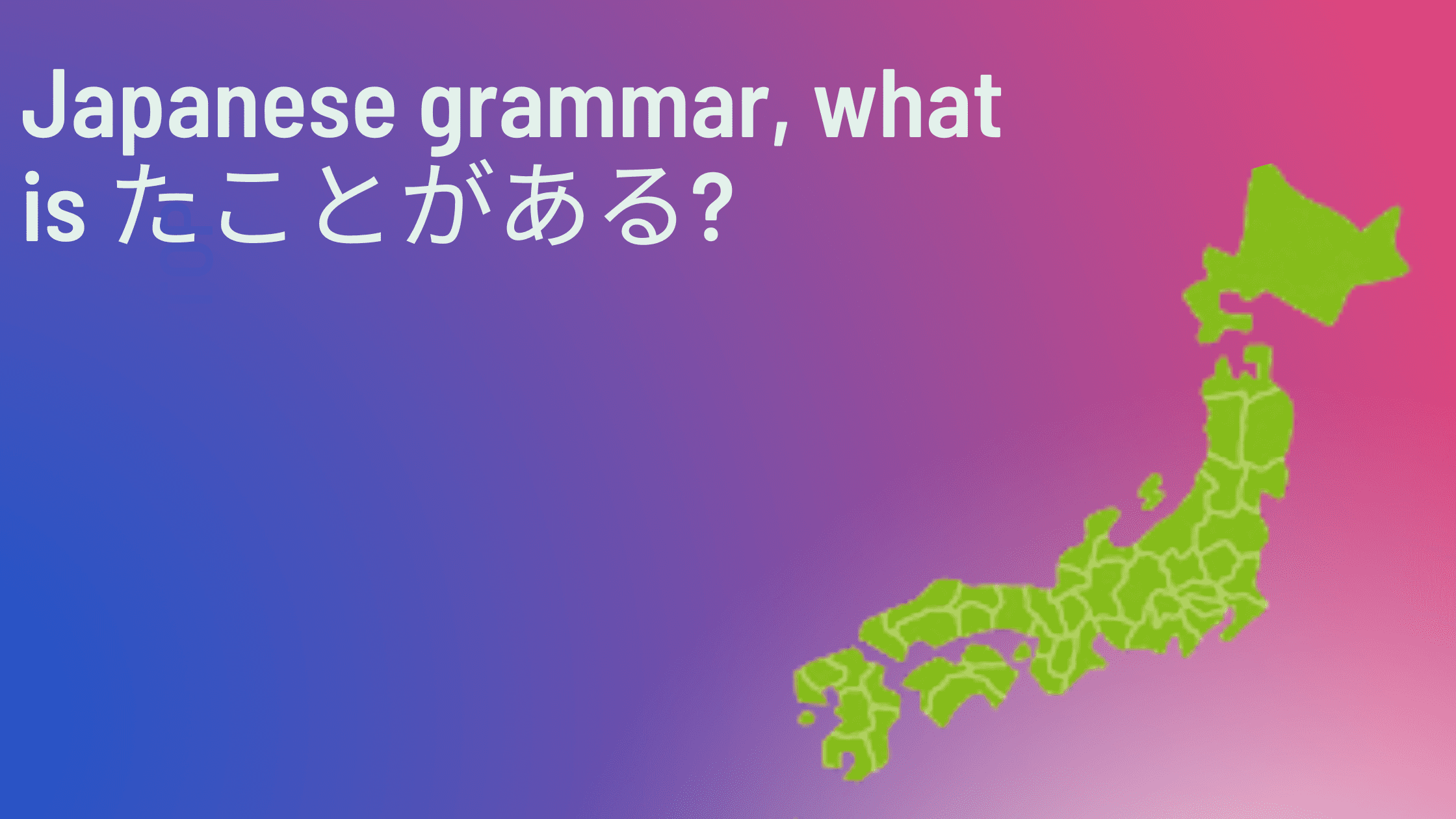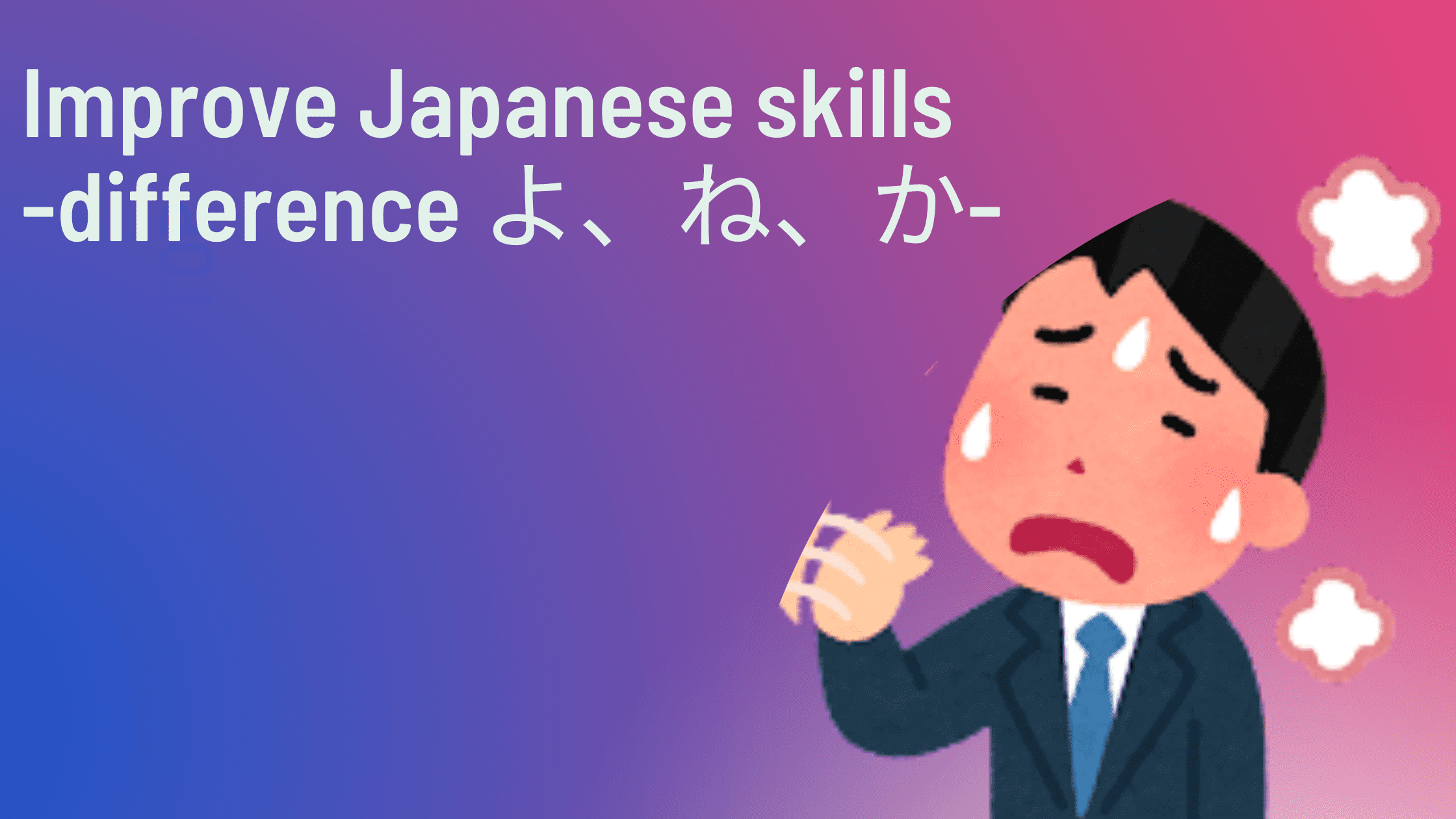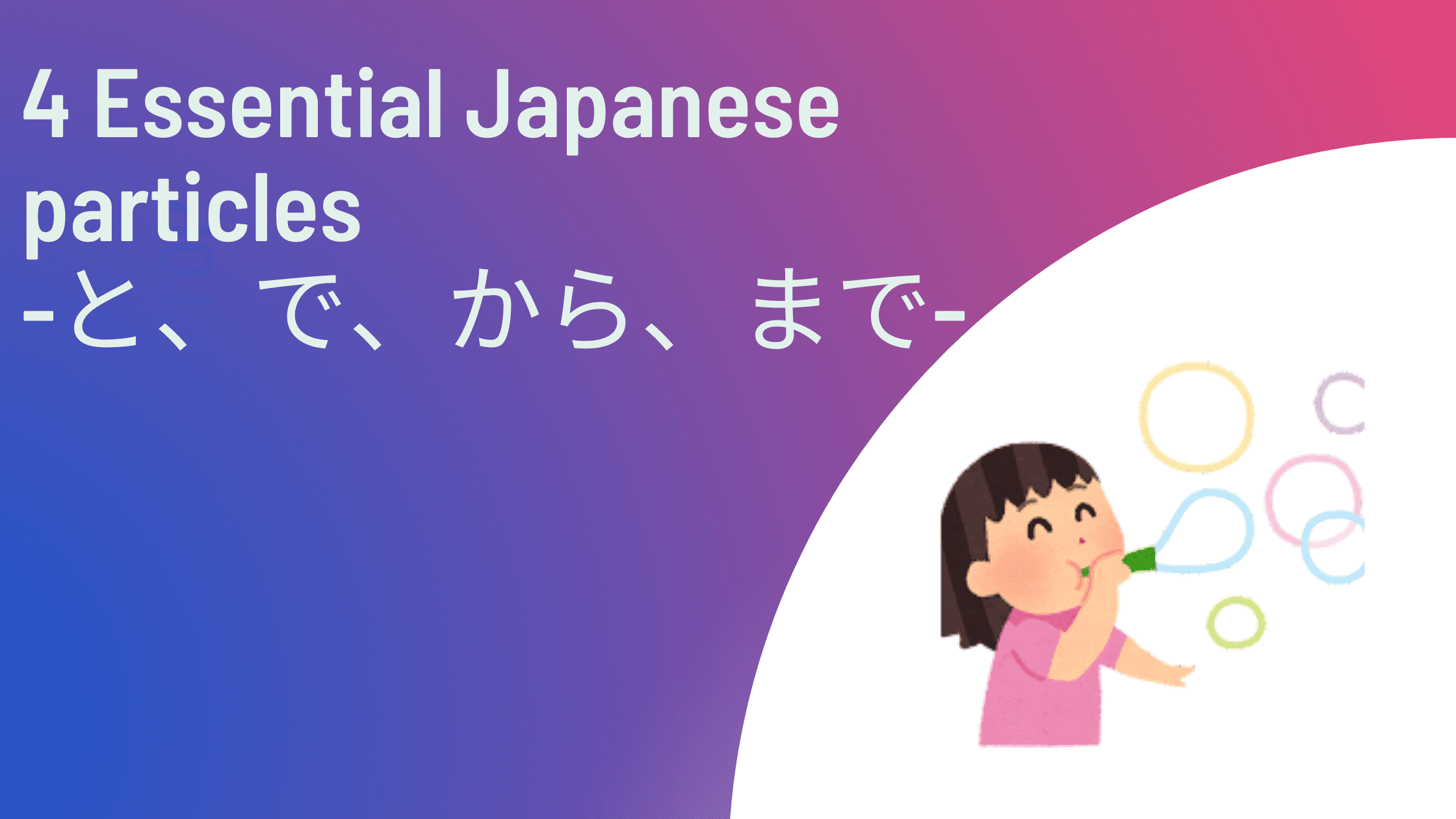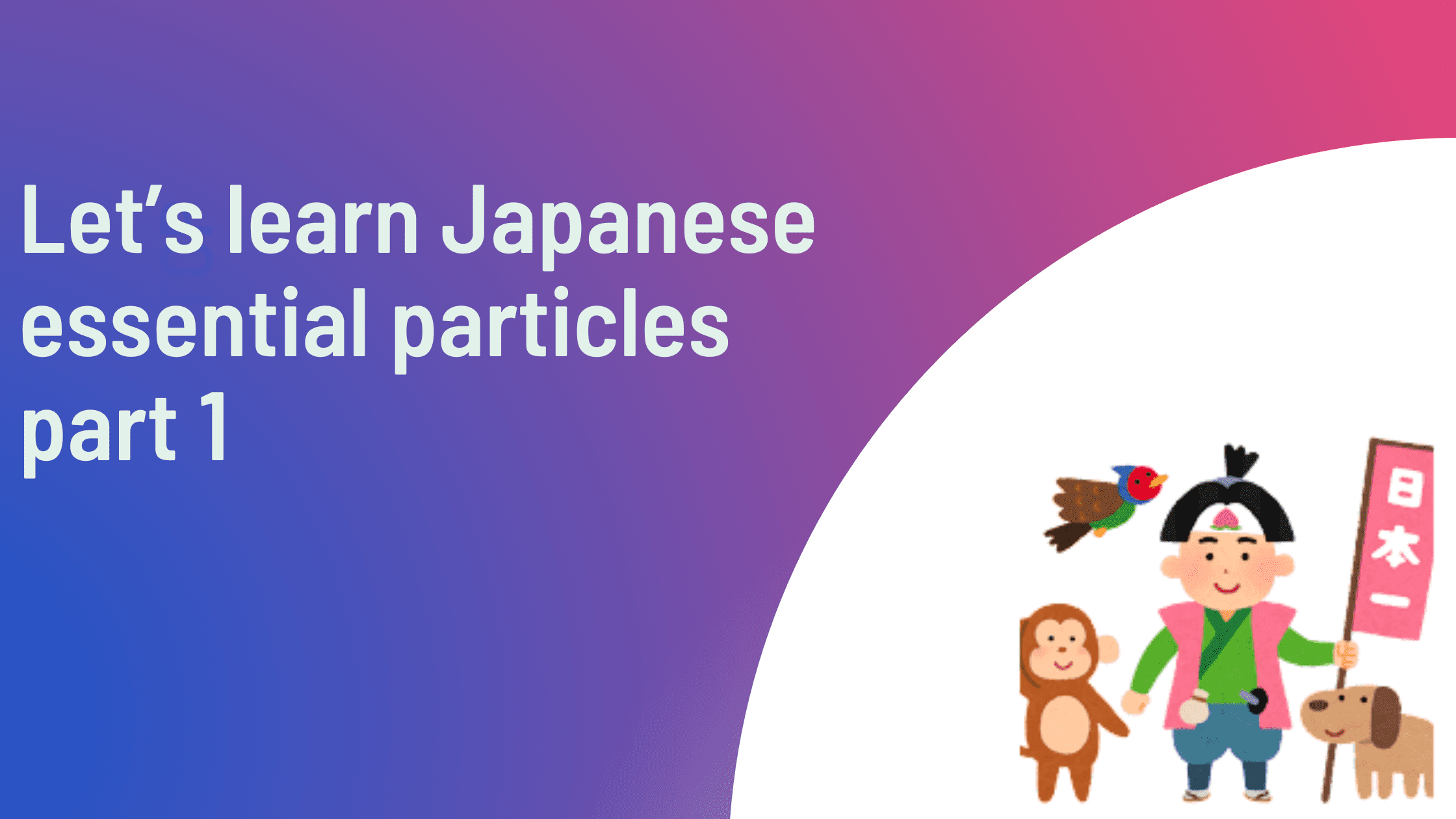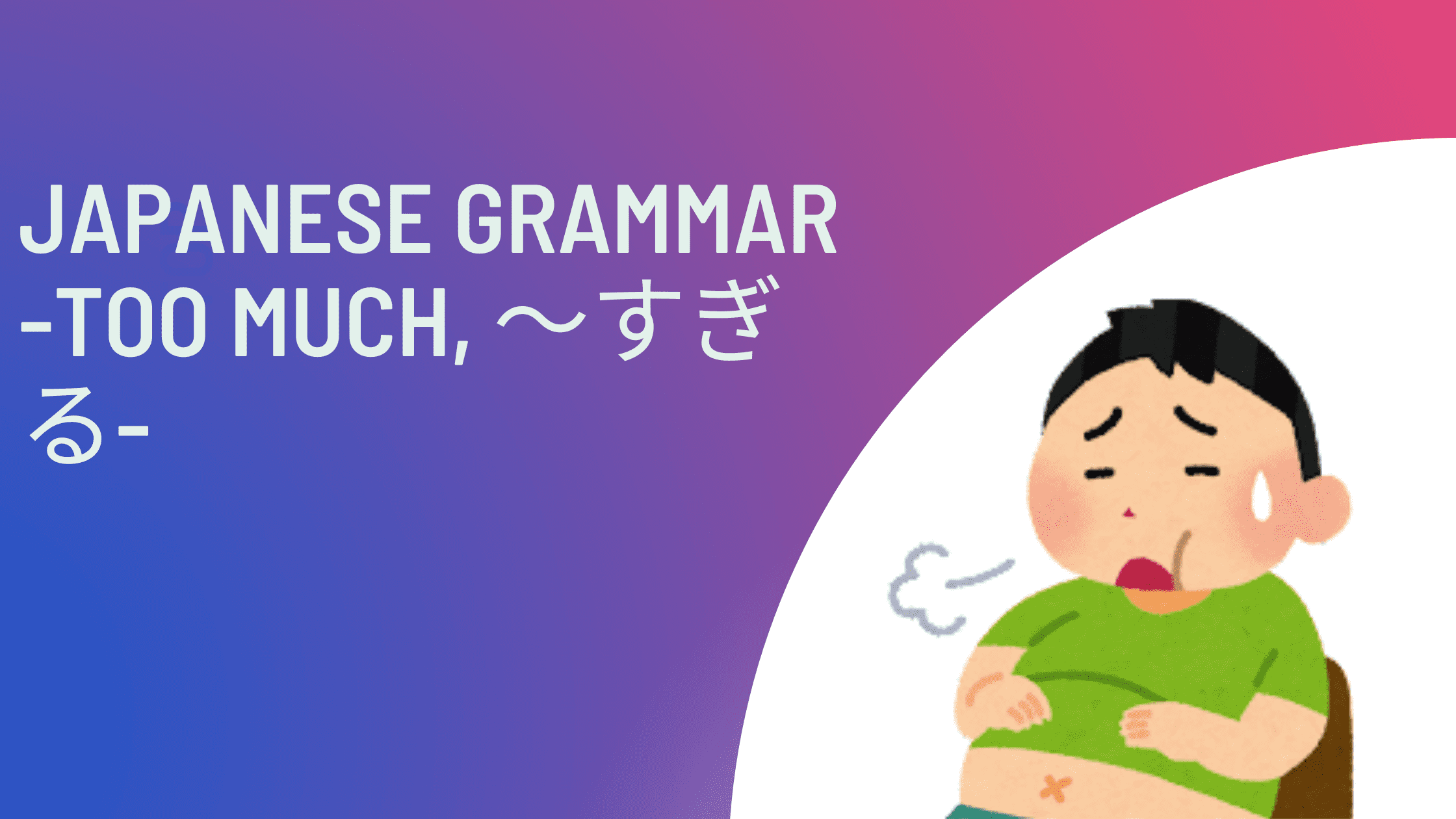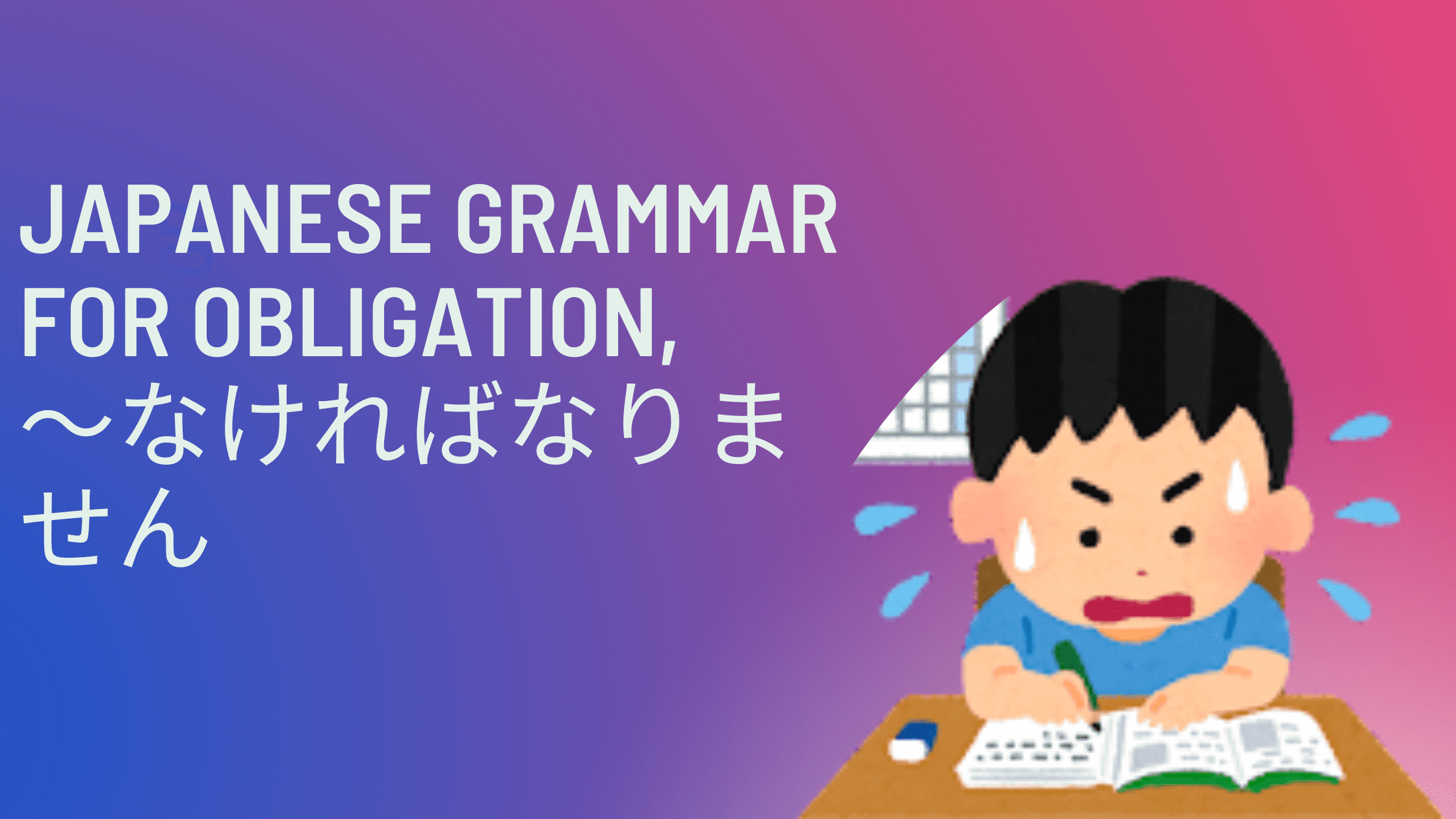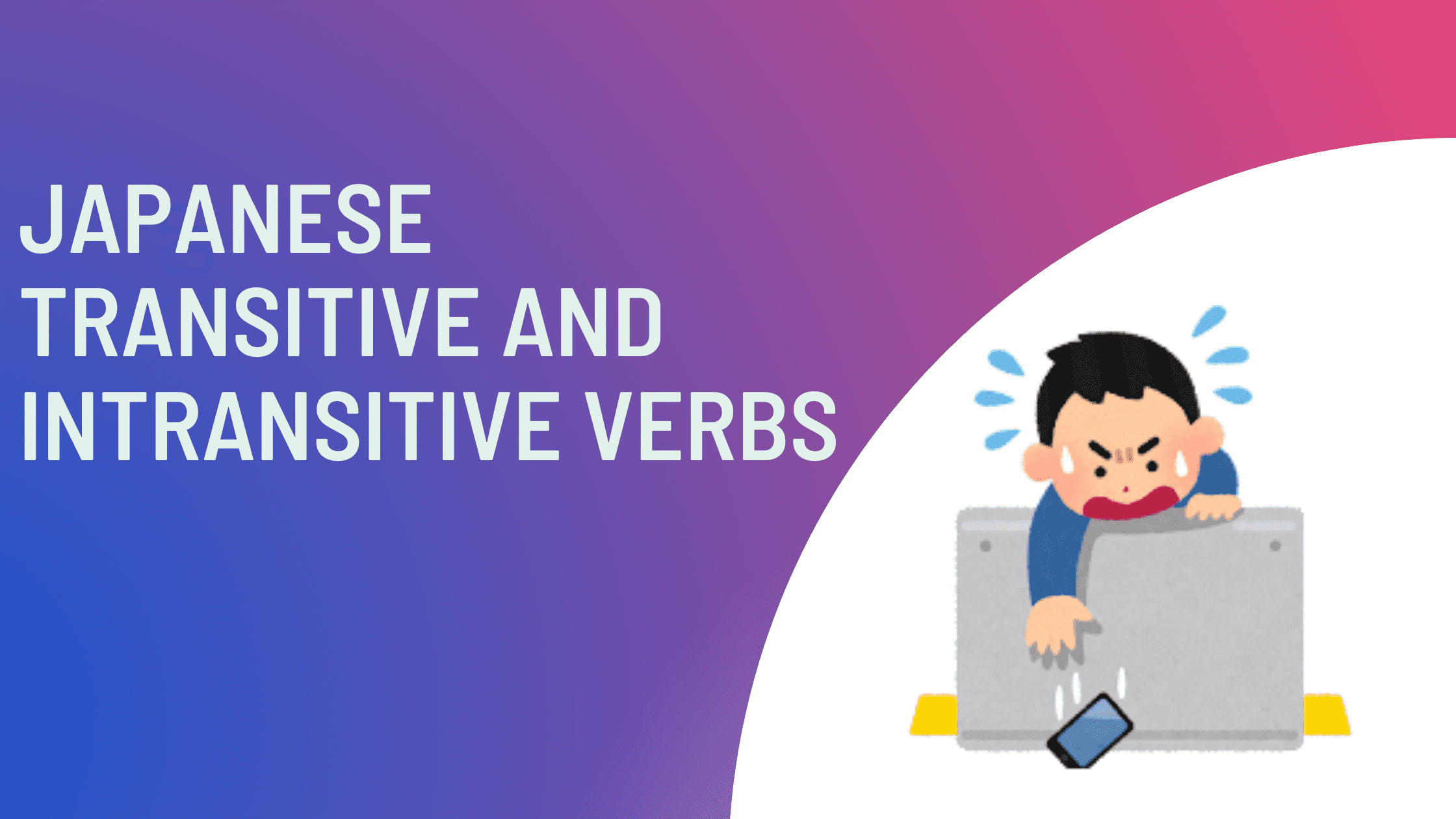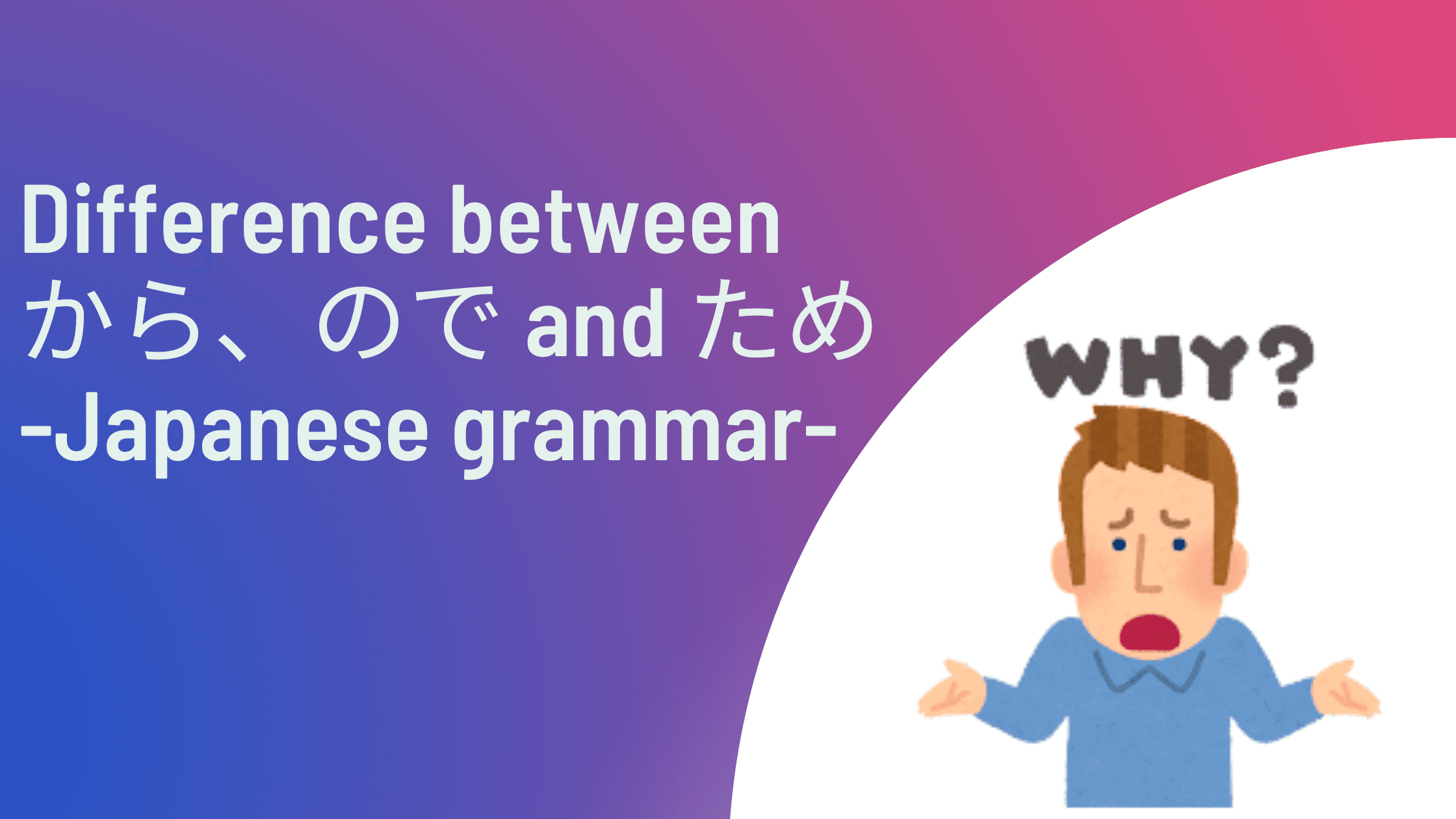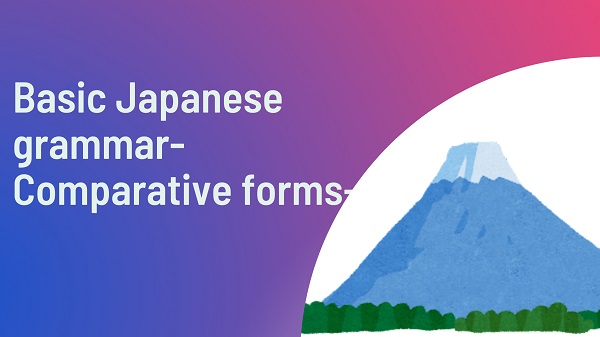When you want to say “I’ve been to Japan”, how can you say it in Japanese? You can use たことがある to tell someone about your experience. I will explain in more detail in this article. If you don’t know what タ form is, please read this article first. Japanese verbs conjugation-past tense *Are you looking…
Read MoreYou may have heard “ですよ”, “ですね”, “ですか” or “ですよね”. よ, ね and か are called sentence ending particles (しゅうじょし), but what’s the difference among them? In this article, I will teach you the differences with examples. I’ve been teaching Japanese to beginners for three years, so you will understand the differences when you finish reading…
Read MoreI wrote about 5 essential Japanese particles, は, が, を, に, へ in the previous article. In this article, I will teach you another 4 essential Japanese particles, と, で, から, まで. If you haven’t read the previous article, please read it first. Let’s learn Japanese essential particles part 1 I have been teaching Japanese…
Read MoreYou may feel difficulty when learning Japanese particles because there are many particles and one particle has many meanings. It’s understandable. I have been learning English over 20 years, but I am still struggling to use prepositions. In this article, I will teach you very basic Japanese particles (は、が、を、へ、に、と、で、から、まで). There are many Japanese particles, but…
Read MorePlease think about this conversation. A: I went to a new restaurant. B: How was that? A: It was good. Simply, there are two types of demonstratives in English (this and that), but there are three types of demonstratives in Japanese (これ, それ, あれ). I explained the basic rule for the difference of them before.…
Read MoreWhen something exceeds the standard and it causes a problem, how can you explain the situation? In this case, you can use ~すぎる. In this article, I’ll teach you what ~すぎる is and how to use it. *Are you looking for a place to practice Japanese? Youtonihongo is for you. You may receive one free…
Read MoreWhen you want to say I must study hard for my exam, how can you say that in Japanese? You can use ~なければなりません in this case. In this article, I will teach you what なければなりません is and how you can use it. *Are you looking for a place to practice Japanese? Youtonihongo is for you.…
Read MoreDo you know the difference between 「ドアがあく」and「ドアをあける」? あける is たどうし(Transitive verb) and あく is じどうし(Intransitive verb), but you may not know the words, even English. Therefore, I explain the difference of these two verbs. When you finish reading this article, you will be able to use these verbs more naturally. *Are you looking for a…
Read MoreWhen we explain a reason, we usually use から、ので、ため. For example, if you say the game has been canceled due to rain, you could say… 雨だから、しあいは ちゅうしに なりました。 雨なので、しあいは ちゅうしに なりました。 雨のため、しあいは ちゅうしに なりました。 Would you like to know the difference? When you read this article, you will understand what the difference is between these three words. *Are you looking for…
Read MoreHow can you say I am younger than you or I am the most handsome person in Japanese? In this article, I will teach you how to use Japanese comparatives and superlatives. When you finish reading this article, you will have the confidence to express yourself by using comparatives and superlatives. I think it is…
Read More